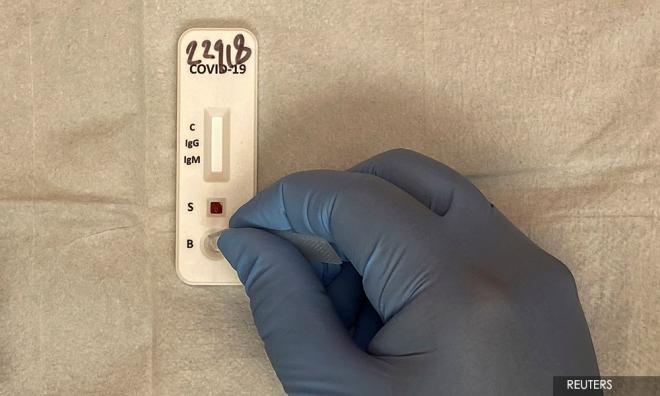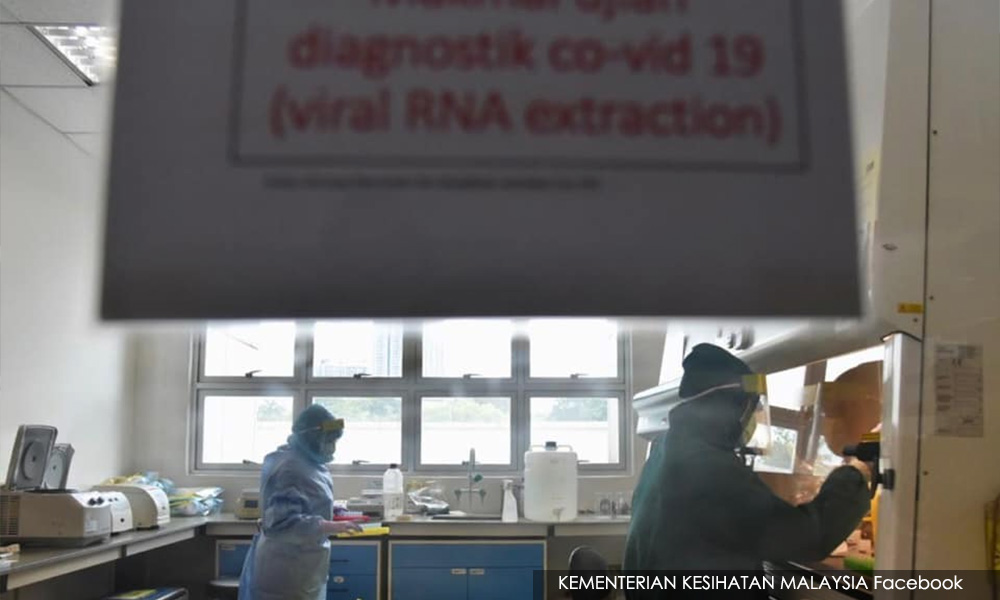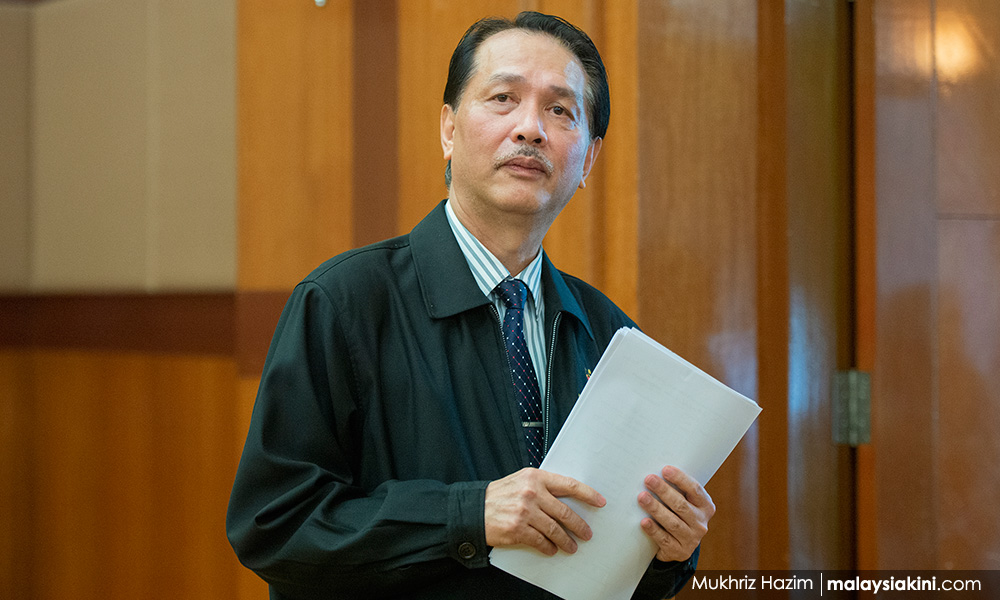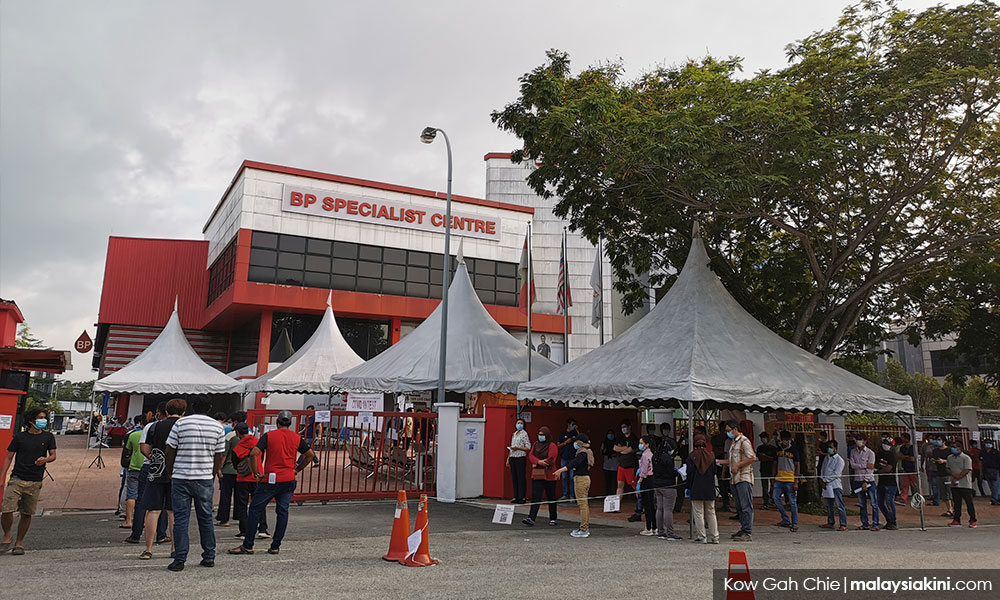
CORONAVIRUS | As Malaysian workers undergo Covid-19 testing in preparation to return to work, Health Ministry (MOH) director-general Dr Noor Hisham Abdullah has reiterated that antibody rapid test kits cannot be used to determine whether a person has the disease.
In addition, he said the presence of antibodies against Covid-19 does not guarantee that a person is immune to a second infection of the disease.
“The presence of antibodies does not confirm an active infection, whereas a negative result does not guarantee the individual tested does not have Covid-19 […]
“To date, there is still no strong evidence from scientific studies showing that people who have recovered from Covid-19 and have produced antibodies are protected from a second infection.
“Thus, there is no ‘immunity passport’, as stated by the World Health Organisation,” Noor Hisham said at his daily press conference today.
Instead, he said the test for diagnosing a Covid-19 infection is through the "real-time reverse transcription-polymerase chain reaction" (rRT-PCR) test or through an antigen rapid test kit.
Both tests require trained personnel wearing personal protective equipment to take swab samples from the nasopharyngeal area through a person’s nose and mouth. It also requires laboratory equipment such as a biological safety cabinet to carry out the test, he said.

For the record, both tests can detect the presence of the virus itself, either through the detection of certain genetic markers for rRT-PCR, or certain proteins on the virus’ surface for the antigen rapid test kit.
Between the two, rRT-PCR is regarded as the "gold standard" because it is more sensitive, but it is also more costly and time-consuming to perform. On April 27, Noor Hisham had said Malaysia has the capacity to perform 16,635 just tests per day.
In contrast, the antibody test can be done at the point-of-care, using a blood sample drawn from a finger prick. It is also relatively cheap compared with a rRT-PCR test.
It detects antibodies produced by the body to fight off a Covid-19 infection, which becomes detectable several days or weeks after an infection has begun.
Noor Hisham said antibody rapid test kits can only be used in "prevalence studies", which surveys a population to determine how many had been infected with Covid-19 in the past.
“This is in line with the WHO’s recommendation, where antibody rapid test kits may be used for surveillance activities and epidemiological studies,” he said.
Noor Hisham’s (below) warning comes amid a rush by employers to get their workers tested for Covid-19, as well as concerns over Covid-19 cases circulating in the community without being detected.

Earlier today, Malaysiakini reported a family in Perak tested positive for Covid-19 during employer-mandated screening despite complying with orders to stay home for the past two months.
Perak has not reported a single Covid-19 case in the preceding period of nearly two weeks.
The government previously required all non-essential businesses seeking an exemption to work during the third phase of the movement control order (MCO) to test all their workers for Covid-19.
This requirement is no longer in force under the conditional MCO beginning May 4, except for migrant workers, although many employers still require their workers to undergo testing before reporting to work.
The government currently only requires workers to undergo daily checks for Covid-19 symptoms such as fever and coughs before they start their shift.
When asked whether Covid-19 tests should be performed on all workers, Noor Hisham said sporadic cases are rare, and he advocated continuing the ministry’s targeted approach to contain outbreaks.

He said in Covid-19 test performed prior to an operation, only 0.1 percent tested positive. Selangor has performed 5,433 tests for its community screening program, which returned ten (0.8 percent) positive results.
The ministry has identified 29,550 people for testing in relation to recent outbreaks at wet markets, of which 25,034 people have been tested, and 183 (0.7 percent) tested positive.
Amongst people quarantined after returning from abroad, he said less than one percent tested positive.
“To perform tests on workers, we may test them for the first time when they return to work, but the next day or the next week, they will be exposed to their community.
“The question is, how many times are we going to test them? Because they are exposed to their community every day.
“So, if there is an outbreak – which is an increase in cases in a locality – only then we will act. We will test those with symptoms and close contacts […]
“What is important is that we take the targeted approach and we keep it under control,” he said. - Mkini



No comments:
Post a Comment
Note: Only a member of this blog may post a comment.